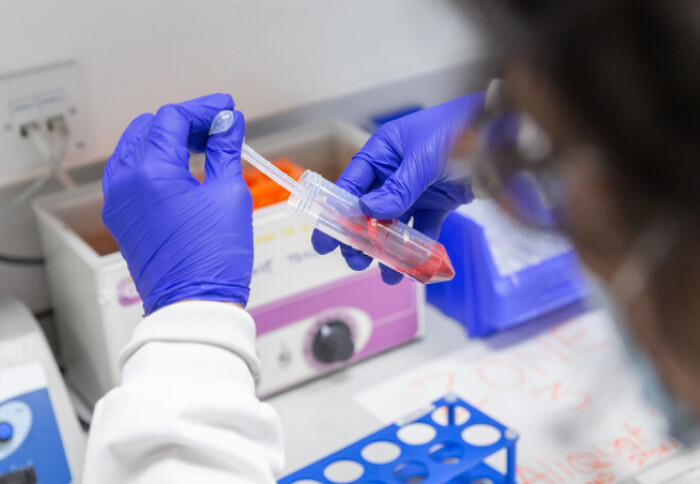New centre established to help develop drug delivery and vaccine technologies
by Meesha Patel

The Intracellular Drug Delivery Centre aims to develop new drug delivery technologies and support promising RNA vaccines and therapeutics.
Established by CPI, the centre is a partnership between Imperial, Medicines Discovery Catapult, the University of Strathclyde and the University of Liverpool.
Funded by Innovate UK’s Transforming Medicines Manufacturing programme, with a grant of £10 million over 3 years, the Centre will provide a single point of entry for drug discovery and development innovators to access new capabilities in intracellular drug delivery.
The partnership is the first-of-its-kind in the UK and will investigate and develop new lipid nanoparticle (LNP) formulations for the delivery of RNA medicine, and a framework to develop next-generation nano delivery systems.
"Collaborations between industry and academia, such as this new Intracellular Drug Delivery Centre launched today, will be crucial in pushing this technology forward and helping us to deliver the next generation of RNA-based vaccines." Prof Robin Shattock Department of Infectious Disease
The Centre will help predict the stability, efficacy, performance and any potential adverse reactions of RNA vaccines and therapeutics. This will help unlock the potential of RNA-based medicines, creating greater access to cutting-edge, cost-effective vaccines and therapeutics for the benefit of patients.
Professor Robin Shattock, Chair in Mucosal Infection and Immunity at Imperial College London said: “Lipid nanoparticles have proven to be a valuable platform for the targeted delivery of medicines and vaccines. Collaborations between industry and academia, such as this new Intracellular Drug Delivery Centre launched today, will be crucial in pushing this technology forward and helping us to deliver the next generation of RNA-based vaccines.”
The potential for new vaccine technologies
The COVID-19 pandemic demonstrated the enormous potential of nucleic acids – the building blocks of mRNA vaccines; but significant innovation is needed to develop new nucleic-acid-based therapies, understand how they work in the body, and improve manufacturing processes.
Industry needs novel drug delivery systems, such as LNPs, to support and complement RNA therapeutic developments. Current LNP systems are expensive to access, so identifying novel, cost-effective alternative delivery methods will promote access to nucleic-acid-based vaccines and therapeutics not just in the UK, but around the world.
This new Centre will provide industry with the much-needed infrastructure to address these challenges and will build on the outstanding expertise and know-how of all partners. This will also attract inward investment and promote resilience and sustainable growth in the UK healthcare ecosystem, meeting key Transforming Medicines Manufacturing programme objectives.
There will also be a strong emphasis on training and developing the future workforce through courses and network building for early-career researchers.
"The new Centre will make it easier for industry to access expertise in this important sector." Dr Juliana Haggerty CPI
The funding will cover additional state-of-the-art equipment at CPI’s facilities in Sedgefield in the North East of England, along with complementary capability development for its partners.
Dr Juliana Haggerty, Head of Intracellular Drug Discovery Centre at CPI, said: “We’re excited to be leading this novel partnership, bringing together leading experts in intracellular drug delivery. This unique collaboration can provide the industry with unparalleled access to cutting-edge technologies to accelerate drug design, development, characterisation, and manufacture.”
“The new Centre will make it easier for industry to access expertise in this important sector.”
Adapted from a press release by CPI.
Article supporters
Article text (excluding photos or graphics) © Imperial College London.
Photos and graphics subject to third party copyright used with permission or © Imperial College London.
Reporter
Meesha Patel
Faculty of Medicine Centre